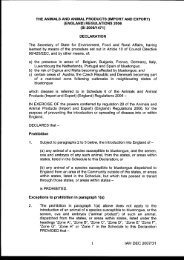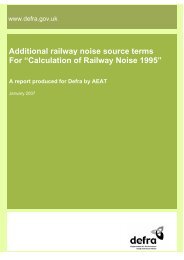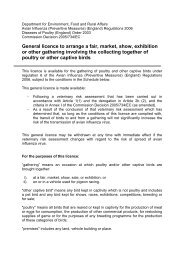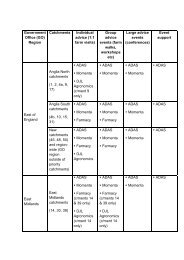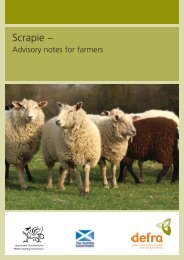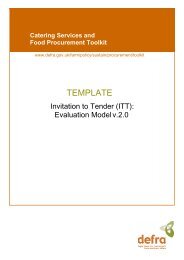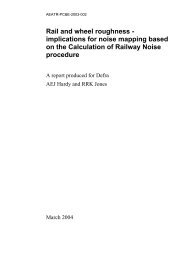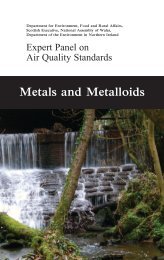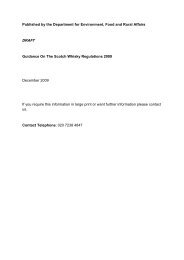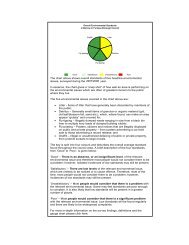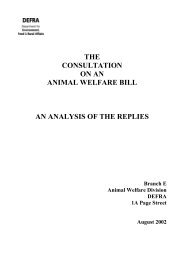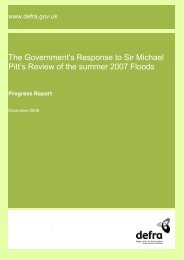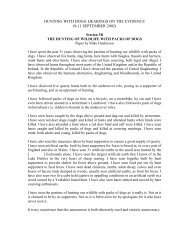Review of the Food-borne Zoonoses Research ... - ARCHIVE: Defra
Review of the Food-borne Zoonoses Research ... - ARCHIVE: Defra
Review of the Food-borne Zoonoses Research ... - ARCHIVE: Defra
You also want an ePaper? Increase the reach of your titles
YUMPU automatically turns print PDFs into web optimized ePapers that Google loves.
3. E. coli review summary<br />
3.1 Success <strong>of</strong> research in providing value to <strong>Defra</strong><br />
In recent years, research projects including those supported by <strong>Defra</strong> have contributed<br />
greatly to a better understanding <strong>of</strong> E. coli O157 infections in animals and man. The<br />
series <strong>of</strong> <strong>Defra</strong> funded projects has led to significant progress being made in several<br />
areas, from gaining better knowledge <strong>of</strong> <strong>the</strong> prevalence <strong>of</strong> infection in cattle and o<strong>the</strong>r<br />
livestock species through to <strong>the</strong> development <strong>of</strong> possible approaches to <strong>the</strong> control <strong>of</strong> <strong>the</strong><br />
infection in cattle.<br />
3.2 Issues and areas <strong>of</strong> concern relating to this research<br />
A wide range <strong>of</strong> research projects were reviewed and while some areas <strong>of</strong> research had<br />
not been particularly productive <strong>the</strong>re were o<strong>the</strong>r areas where excellent progress had<br />
been made. <strong>Research</strong> related to <strong>the</strong> predilection site for E. coli O157 colonisation in<br />
cattle and <strong>the</strong> progress towards developing control methods based on this knowledge<br />
were rated highly. It was noted that VTECs o<strong>the</strong>r than E. coli O157 also are a disease<br />
risk and <strong>the</strong> research programme should not focus entirely on E. coli O157.<br />
3.3 Gaps in research<br />
A better understanding is still required <strong>of</strong> <strong>the</strong> epidemiology <strong>of</strong> <strong>the</strong> infection particularly as<br />
it is now clear that infection can be acquired from environmental and o<strong>the</strong>r sources in<br />
addition to <strong>the</strong> well described route through eating infected meat products. An on-going<br />
review project funded by <strong>the</strong> FSA on past and current research on verocytotoxin<br />
producing Escherichia coli (VTEC) in relation to public health protection is expected to<br />
provide some useful indications <strong>of</strong> research gaps and requirements.<br />
It was considered that fur<strong>the</strong>r research on vaccination as a possible approach to control<br />
was justified and it was noted that <strong>the</strong>re is a current LINK project looking at vaccination<br />
strategies in cattle. Although research has shown that o<strong>the</strong>r livestock species apart from<br />
cattle can be colonised to a varying extent by E. coli O157, it was suggested that a better<br />
26



